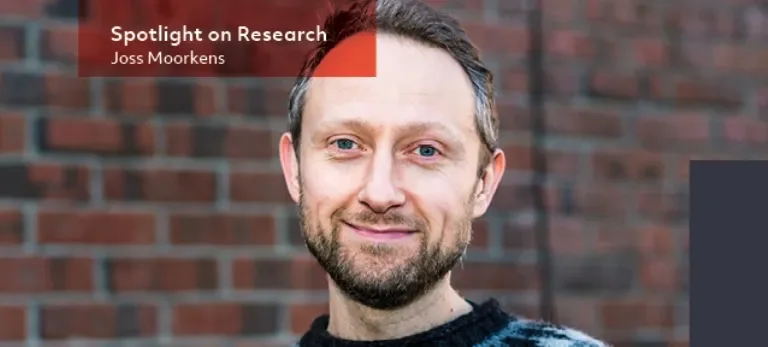

On the beat for machine translation
Spotlight on Research speaks to Dr Joss Moorkens, Assistant Professor at the School of Applied Language and Intercultural Studies, DCU; Researcher with the Science Foundation Ireland ADAPT Centre and the Centre for Translation and Textual Studies.
You work in the area of machine translation, where computers are used to translate text or content into other languages. How did you become interested in that?
“It all started with drumming.”
With drumming? How?
“I used to be a semi-professional drummer. I started playing in my teens and I went on to tour the US and Europe with indie bands.
I started to work with singer-songwriters, dividing my time between that and a job with an Internet Service Provider.
One of the artists I worked with had studied translation and he was able to go and live in different cities around the world with that background.
So I went to DCU and did a translation and Japanese language degree and a PhD, then did postdocs in SALIS and the School of Computing, and finally came back to SALIS where I teach and research about translation technology now.”
What do you look at in your research?
“I’m interested both in translation technology and machine translation, focussing on quality evaluation and how translators use technology.
In the ADAPT Centre we are particularly interested in the translation of digital content, like online documentation or subtitles for videos and online education programmes or MOOCs.
I also look at the employment culture and attitudes of translators – it’s quite a vulnerable profession as the majority of translators work freelance - and whether the technology is having an impact there.”
What projects are you currently working on?
“I’ve just finished working on an EU-funded project to create replicable methods for machine translation of MOOCs.
On another project, funded by Science Foundation Ireland, we are creating interfaces for translation that allow you to use other modes than the keyboard, so that might be voice input or physically dragging words on the screen.
I work with postdoc researchers on a couple of projects with Microsoft too, looking to automate simple edits of machine-translated texts and using eye-tracking to identify hotspots where people have trouble with translations.
I work with PhD students looking at using subtitles for language learning, audiovisual translation production networks, use of machine translation for academic texts, and cybersecurity, and I worked a little with a PhD student in the University of Salamanca who is comparing how machine translation systems translate terms about refugees, to see if they use politically loaded terms.
I have also been editing a book with colleagues about assessing the quality of translation.
I recently did a report for the Department of Culture, Heritage and the Gaeltacht too on attitudes to technology and job satisfaction among Irish language translators, and that will inform policy on bringing in technology and trying to grow the number of Irish language translators.”
What is your typical day like?
“Most days I do a couple of hours of teaching, and the rest of the time I am working on projects, journal articles, reports, the book, meeting PhDs and postdocs, or coordinating the undergrad dissertation for our translation degree.
I tend to leave DCU at 6pm and get home and put the kids to bed, then I work until about 11.30pm.”
How do you take a break from the research and teaching?
“I play soccer at lunchtime when I can, it’s a good way to get out and moving and nobody tends to get injured because we all know we have to go back to work after the game.
At home when I get the chance I like listening to music and baking bread.
I have managed to keep a sourdough starter going for some time now and I like experimenting with new flavours, like beer, which gives the bread a malty taste.”
Do you still play the drums?
“I haven’t hit a drum since 2015, but some of the music I worked on previously is still coming out on albums.”
